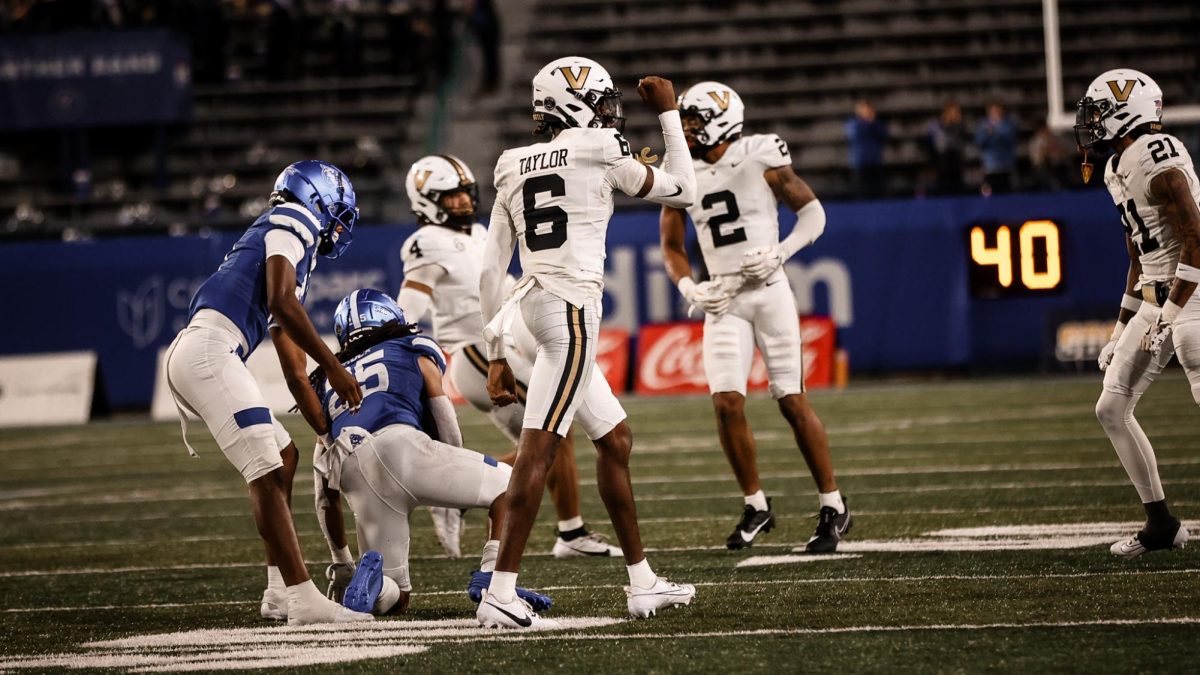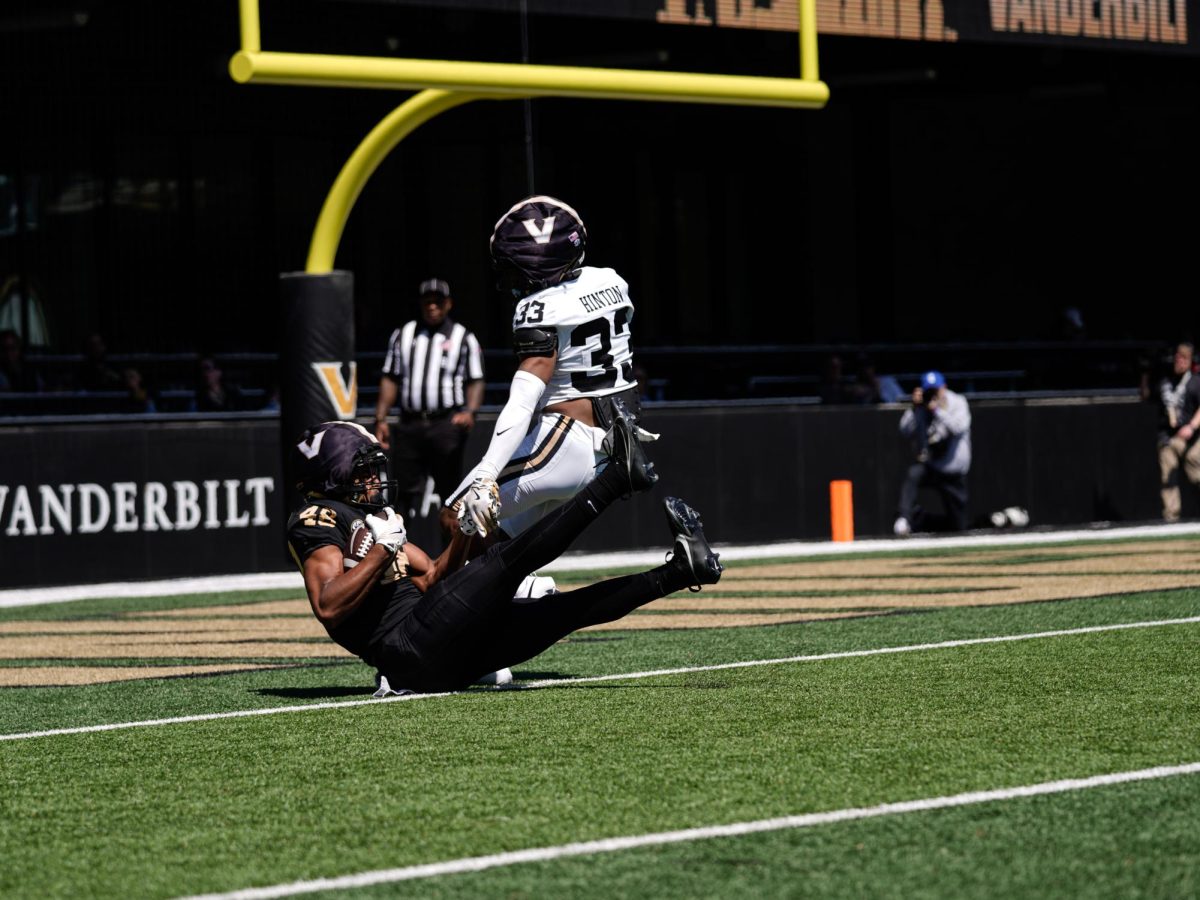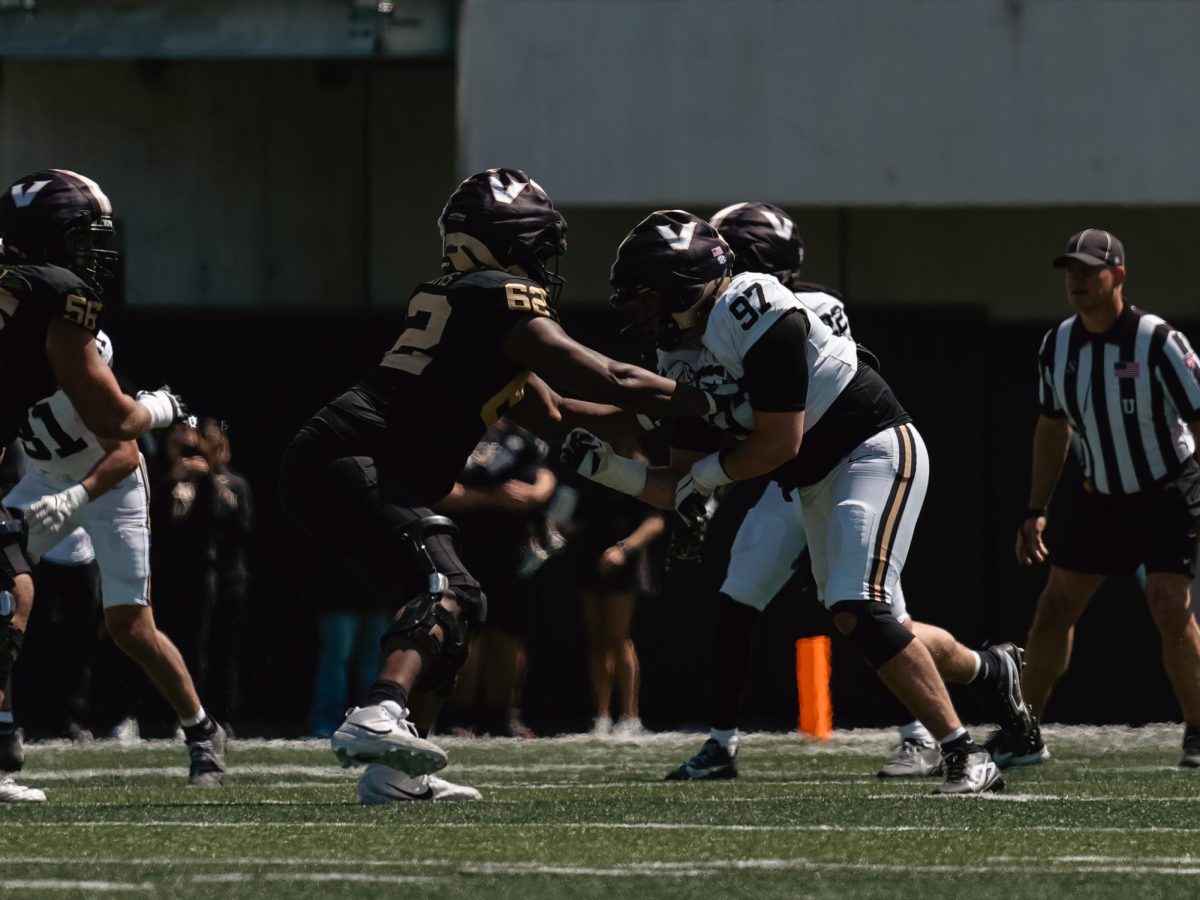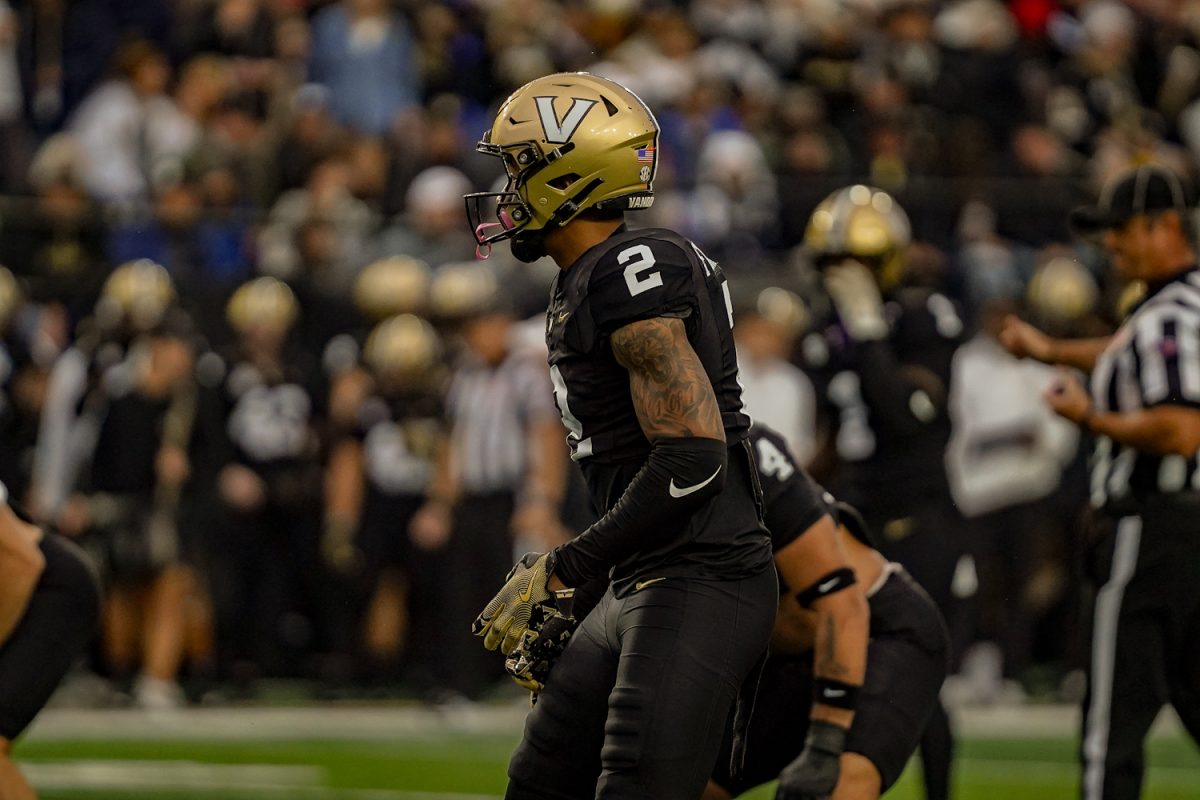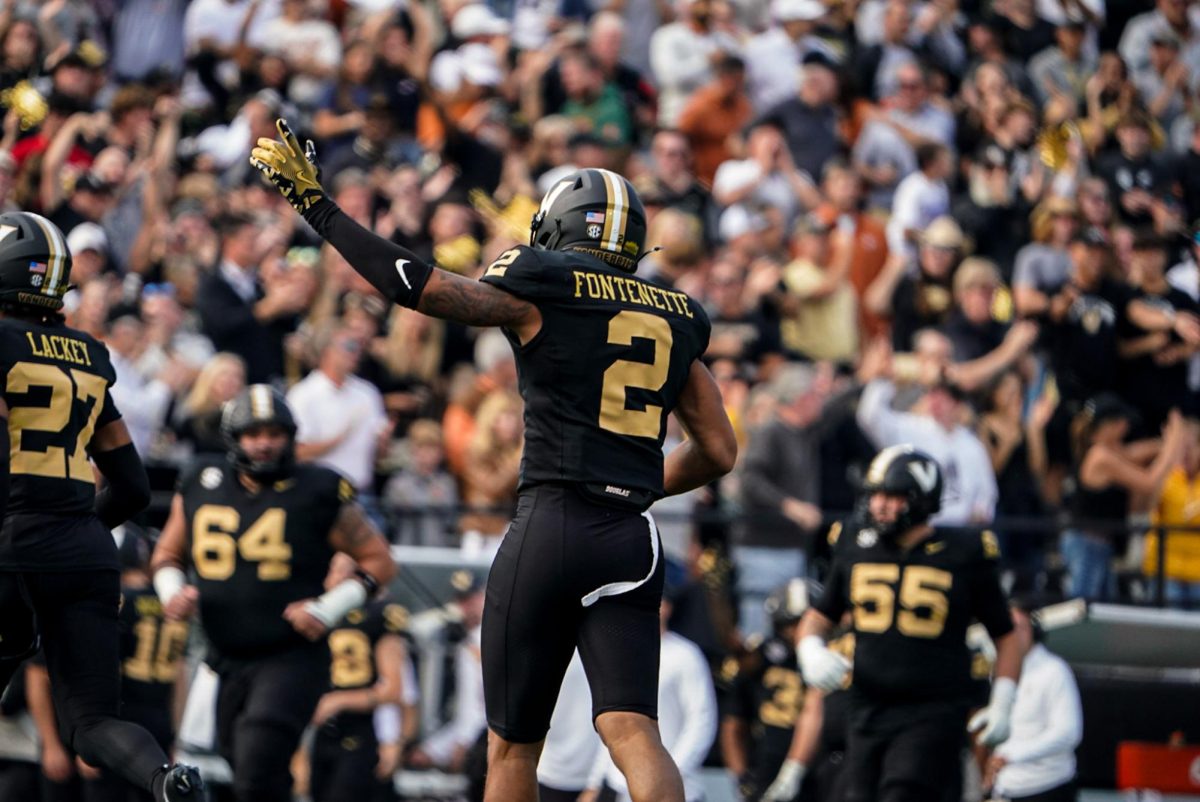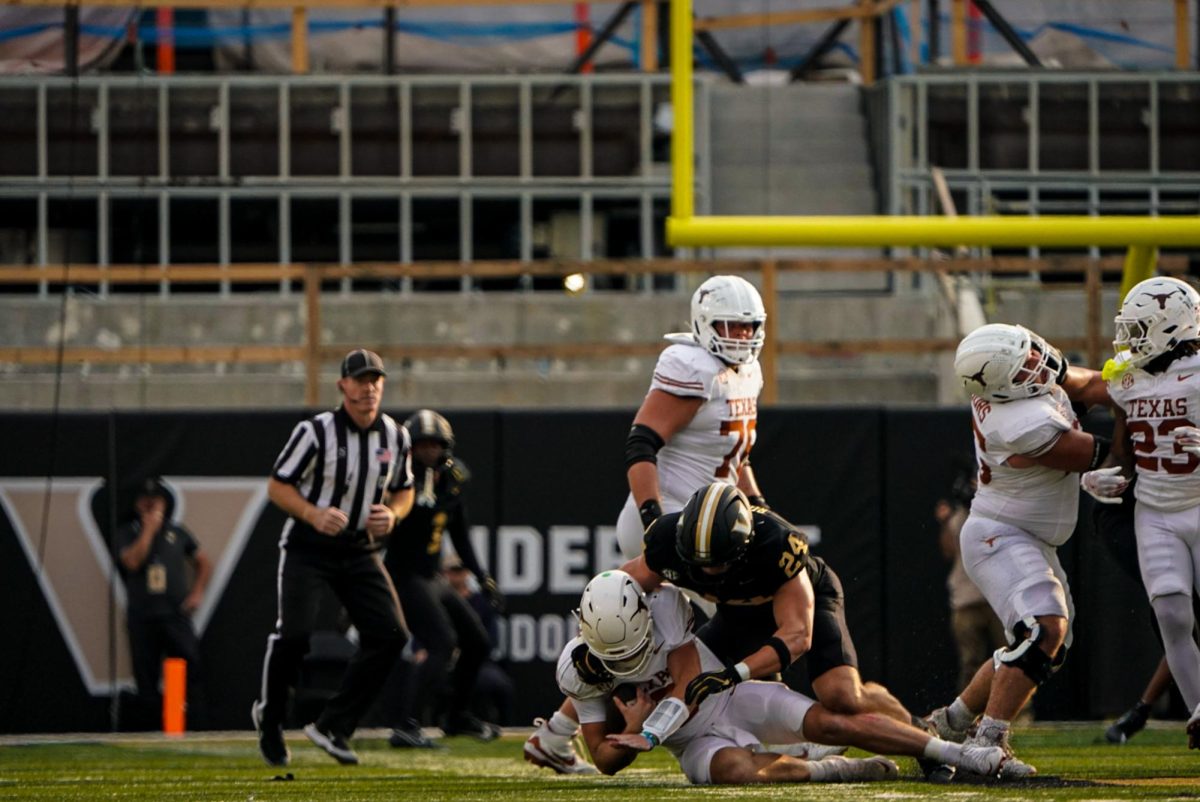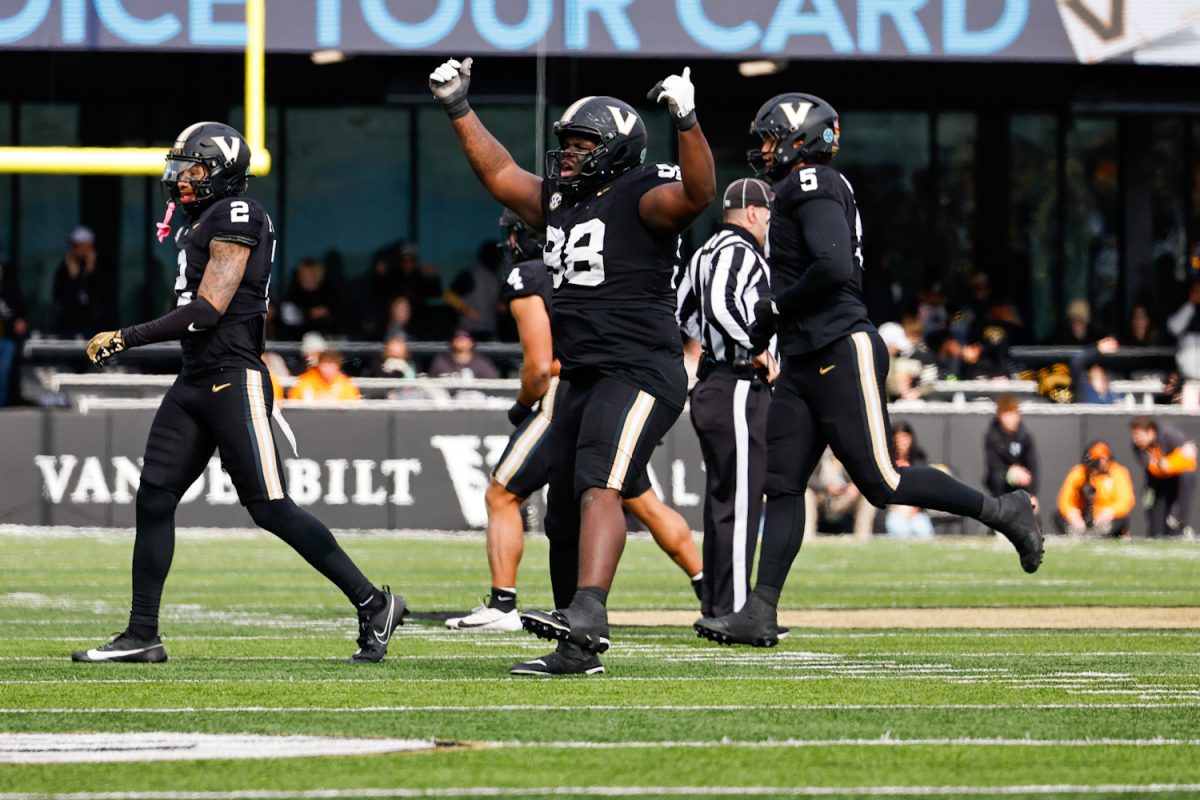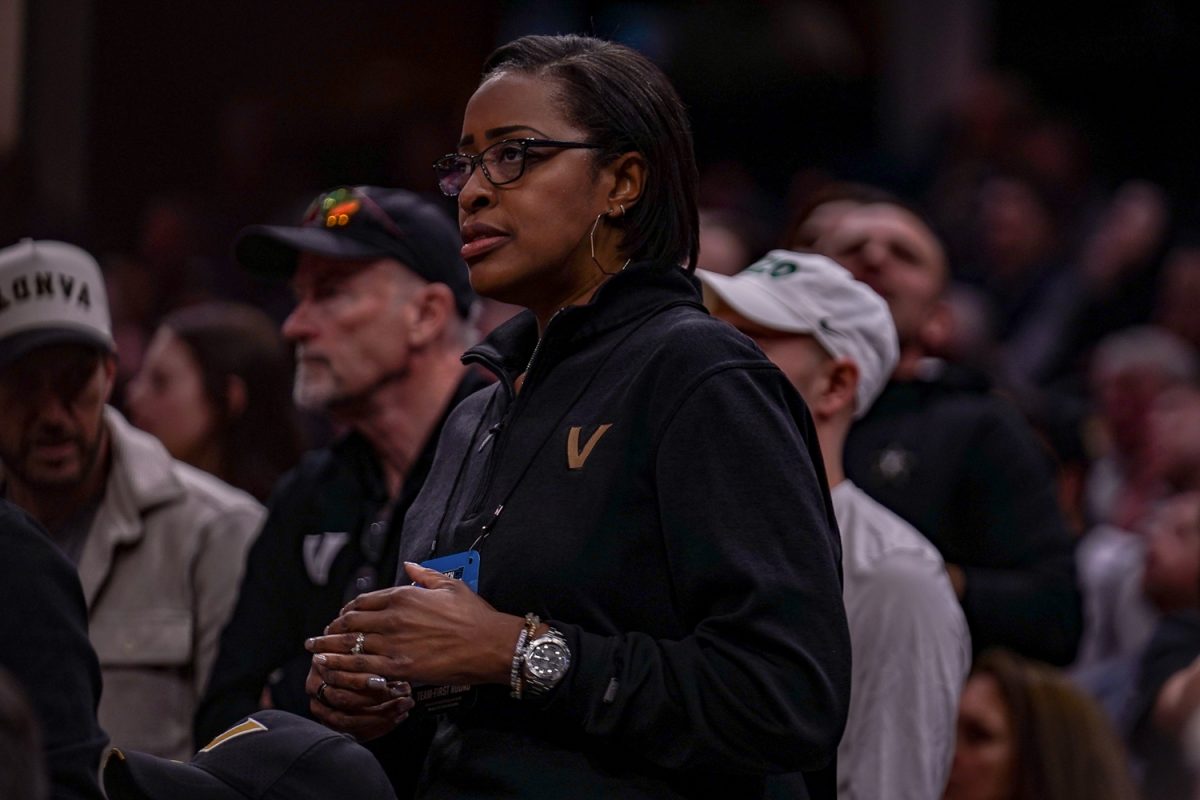The hype that Vanderbilt Football built over its first two home wins came to a screeching halt last week at the hands of Georgia State. After outlasting Virginia Tech in its home opener and dominating Alcorn State 55-0 in Week Two, the Commodores struggled on Saturday. They showed their weaknesses on the defensive side of the ball, as they allowed a 59-second game-winning drive to lose 36-32. This defeat continues the trend of head coach Clark Lea’s road struggles over the past four years.
Georgia State gashed Vanderbilt for 426 yards of total offense and controlled the ball for the majority of the contest. It managed to move the ball efficiently both on the ground and through the air, averaging 4.6 yards per rush and 6.6 yards per throw.
The fan support that peaked with Vanderbilt’s first two performances may prove to be fickle now that Vanderbilt has dropped to a 2-1 record. With no bowl game appearances in Lea’s tenure, there was some serious excitement about team four’s potential, but a lot of that optimism has died down. After losing a game that appeared winnable on the schedule, expectations for Vanderbilt seem to be falling back down to the basement level that they started at before the season. However, surprising the nation with a solid performance in conference play could send the fanbase into even more enthusiasm than before.
How might Vanderbilt achieve this against a top 10 team in Missouri? Here are three key matchups to watch out for in Week Four.
Vanderbilt’s secondary vs. Missouri’s receivers
Vanderbilt’s secondary has struggled at times this season, highlighted by the 269 passing yards it allowed against Georgia State. 128 of those yards came from Panthers’ wide receiver Ted Hurst, who nabbed seven receptions, two of which went for touchdowns. The Commodores gave up 7 different completions of 20 or more yards against Virginia Tech. Although the unit has added multiple turnovers, with four interceptions through three games, safeties CJ Taylor and De’Rickey Wright, as well as cornerbacks Kolbey Taylor, Tyson Russell and Martel Hight, will all need to step up. Worth noting is the fact that CJ Taylor will be missing the first half of this game after committing a targeting penalty last week against Georgia State.
Vanderbilt’s secondary must be tight in coverage to slow down Missouri’s passing offense. The onus will also fall on defensive playcaller Lea to put defenders in a position to succeed, especially on third down, as Vanderbilt allowed Georgia State to convert 9 of its 16 third downs on Saturday. Shutting down explosive passes should be a priority for Vanderbilt this coming weekend.
Missouri has executed an effective passing game so far this year, averaging 279 passing yards through its first three games. Theo Wease Jr. has led the Tigers in both yards and receptions through those games, although future NFL draft pick Luther Burden III stole the show last week, logging 117 yards and a touchdown on 6 receptions. Missouri passes the ball on 47% of its offensive snaps and averages 7.3 yards per passing attempt, both middle-of-the-pack figures when compared to all FBS teams. However, a star-studded receiving corps helps make the Tigers’ overall passing attack quite dangerous.
Missouri’s pass rush vs. Vanderbilt’s offensive line
Missouri’s defense has emerged as a force in the early stages of the college football season, anchored by an elite interior pass rush unit. At the heart of this success is Florida transfer Chris McClellan, a potential All-American who has already amassed 10 tackles and 1.5 sacks in just three games. The Tigers have been particularly effective against the pass, allowing a mere 110 yards per game, good enough for fourth in the FBS. Their red zone defense has been equally impressive, conceding only three touchdowns all season, all of which came in last week’s 27-21 victory over Boston College. As they prepare to face Vanderbilt, Missouri’s defensive strategy will likely mirror its approach against the Eagles: aim to disrupt the Commodores’ option-heavy offensive scheme through relentless pressure and aggressive play at the line of scrimmage.
On the other side of the ball, Vanderbilt’s offense, led by quarterback Diego Pavia, has shown flashes of brilliance this season. However, its success has come in spite of an offensive line that has struggled with both protection and discipline. The unit has already allowed 46 sack yards and committed thirteen penalties, raising concerns as they go to face their toughest test yet in Columbia on Saturday. For the Commodores to have any chance of moving the ball against Missouri’s stout defense, significant improvements in offensive line play are crucial. Protecting Pavia and reducing penalties in the trenches could be the difference between a competitive game and a long afternoon for Vanderbilt.
Missouri’s home-field advantage vs. Lea’s road struggles
Since joining the SEC in 2012, Missouri has established a menacing home-field advantage at Faurot Field. The Tigers boast an impressive 7-2 all-time record against Vanderbilt in Columbia, with Missouri’s home performance rated at +4.64 points above neutral site expectations. As the upcoming game is expected to reach sell-out status, the Commodores face the daunting prospect of contending not only with Missouri’s on-field talent but also with its passionate fanbase. The electric atmosphere at Faurot Field has consistently proven to be a factor for visiting teams, and Vanderbilt’s recent road struggles suggest that it may be particularly vulnerable to this environment.
Under the leadership of Lea, Vanderbilt has struggled in away games, posting a dismal 3-10 record on the road since 2022. This was spotlighted in its most recent setback last week against Georgia State, highlighting the team’s difficulties away from Nashville. In SEC road contests during Lea’s tenure, the Commodores have been outscored by an average of 23.1 points, with their lone victory coming against Kentucky in November 2022. This upcoming matchup presents yet another stern test for Lea and his squad as they enter the game as 21.5-point underdogs. This substantial spread reflects both Missouri’s home-field prowess and Vanderbilt’s road woes. As Lea faces increased pressure to improve the team’s performance, particularly in hostile environments, this game could prove pivotal in shaping perceptions of his leadership and the program’s trajectory.
The game between Vanderbilt and Missouri kicks off at 3:15 p.m. CDT on Saturday at Faurot Field in Columbia, Mo.

